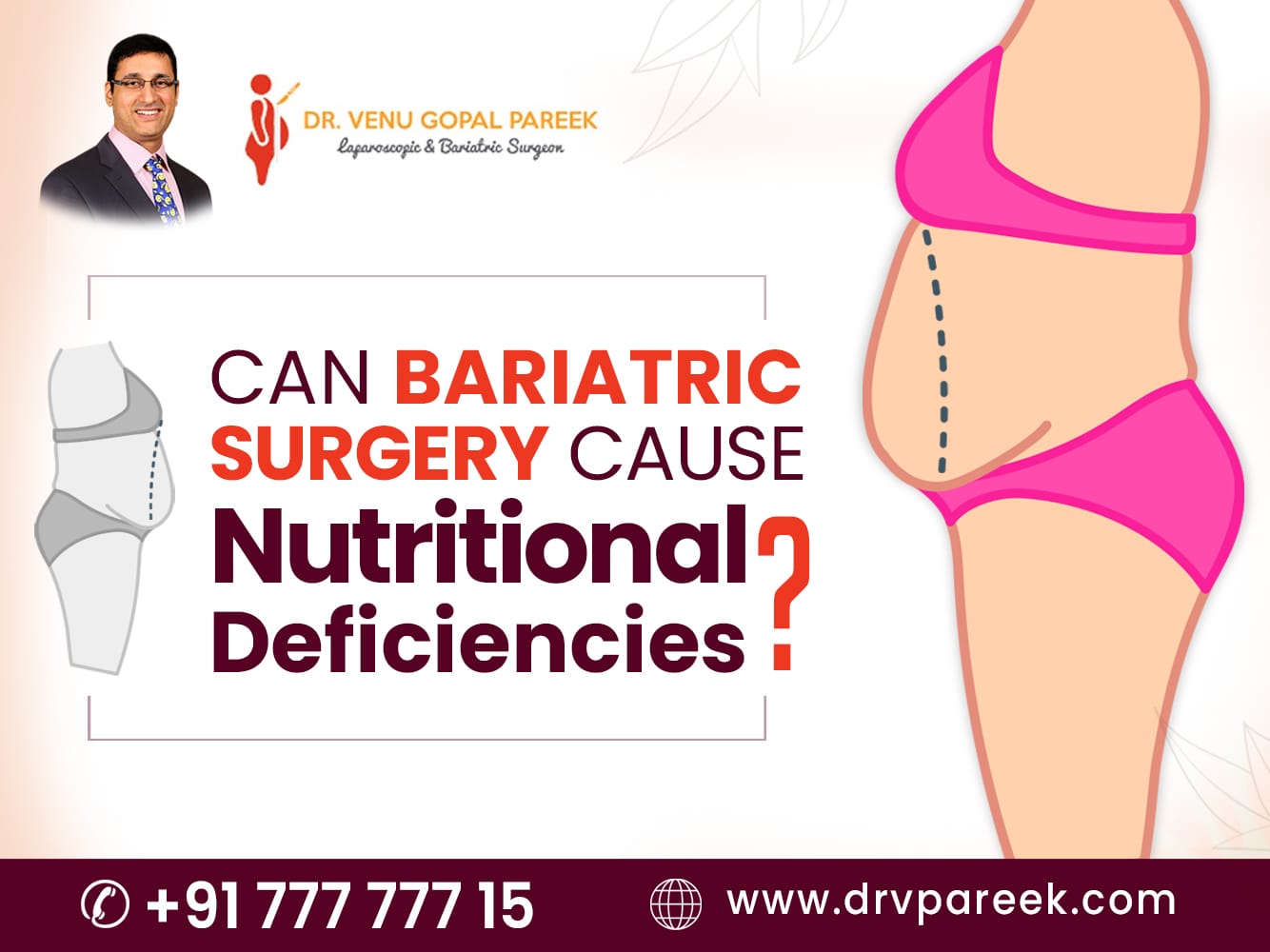
Can Bariatric Surgery cause Nutritional deficiencies?
In a survey conducted by NFHS between 2019 and 2021 in India, it is said that around 6.4% of women and 4% of men aged between 15-49 years are suffering from obesity. In the same age range, about 17.6% of women and 18.9% of men are suffering from overweight but not obesity.
In recent years bariatric surgery for weight loss has become popular due to its benefits. Any major surgical procedures are prone to some minor complications. Similarly, bariatric surgery is also a major surgical procedure and it may result in complications like nutrient deficiencies. Despite its complications, it’s estimated that obesity surgery patients will increase rapidly in the next few years.
Nowadays, almost all bariatric surgery centres in India offer post-op guidelines to avoid complications. They will design a customized diet plan on what to eat and drink nutrient-dense foods in the long run. Surgeons also stress the importance of multi-nutrient dietary supplements, which should start before surgery and last for the rest of one’s life.
However, the issue is that many patients neglect to follow the advice of their surgeons as recommended. Therefore, it is crucial for patients to follow dietary recommendations and healthcare practitioners should also conduct nutritional monitoring.
Possible nutritional deficiencies following bariatric surgery
Most of the nutrients essential for the body are absorbed from the digested food in the stomach that is consumed daily. The bariatric surgery procedure involves the dissection of a small part of the intestine and re-routing it to the intestinal tract. As a result of this surgery, the food you consume is reduced, which may lead to malabsorption.
The absorption of vitamin B12 is a good example of this process. It initiates in the stomach, where it undergoes breakdown and subsequently binds to a substance known as the intrinsic factor. This intrinsic factor plays a crucial role in the absorption of this essential micronutrient.
When the size of the stomach is reduced, the stomach cells lose their ability to produce sufficient quantities of intrinsic factors necessary to aid the vitamin absorption process. Thus, patients may experience vitamin B12 deficiency. So doctors will advise taking a vitamin/mineral regimen on a daily basis. If deficiencies are left untreated it might result in significant health issues.
Other nutritional deficiencies
Copper is another common nutritional deficiency observed following bariatric surgery which is similar to vitamin B12 deficiency. Copper deficiency might affect your memory, sensory nerves, vision, and movement. So doctors will recommend taking a copper supplement at least for 4 to 12 weeks after surgery.
Folate deficiency is rare and observed in less than 1% of patients after bariatric surgery. Especially women who are pregnant or thinking about pregnancy after bariatric should be more careful because low folate levels might cause foetal brain and spinal malformations during embryonic neural tube development. It is advised to eat citrus fruits, green leafy vegetables, and folic acid supplements to treat a folate deficiency.
Vitamin D is another mineral that may be deficient after surgery. The D Vitamin is accountable for calcium absorption and balanced immunity, and cellular function. Patients with vitamin D deficiency may have body aches, prolonged cramping, or discomfort in their bones or muscles. We get Vitamin D from sunlight which is absorbed by our skin. However, doctors recommended taking both calcium and vitamin D dosages after bariatric surgery.
Patients typically experience a deficiency of vitamin E six to twelve months following surgery. Muscle weakness, eye problems like vision impairment, loss of balance and coordination, and sensory problems are some of the symptoms associated with vitamin E deficiency. Vitamin E deficiency can be fixed by consuming seeds and grains or by taking vitamin E supplements.
There are many other vitamins and minerals, like zinc, Iron, vitamin B6, Biotin, Vitamin A, etc., that may become deficient following weight loss surgery.
Nutritional deficiencies after bariatric surgery are common and can be managed efficiently. Dr. Venugopal Pareek, the best bariatric surgeon in Hyderabad, says that, in most cases, nutritional deficiencies can be prevented with proper diagnosis and treatment. Following bariatric surgery, continuous contact and regular interaction with your bariatric surgical team are essential to maintain adequate nutritional levels. By taking the suggested supplements, you can also reduce your risk of developing significant neurological or medical problems after surgery.
For more detailed information on bariatric surgery and to know the management tips for nutritional deficiencies, consult our bariatric surgeon team in Hyderabad. Call +91 91777-77715







